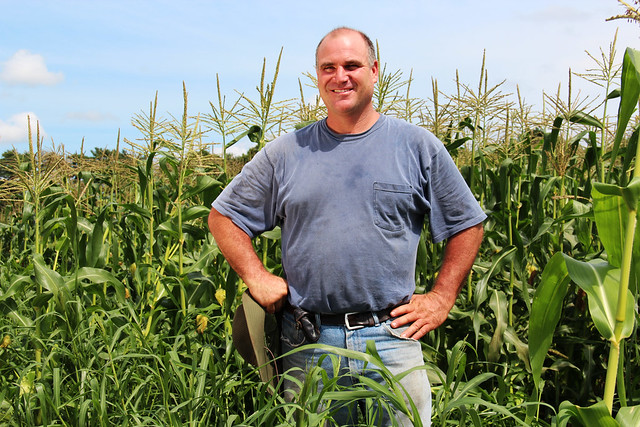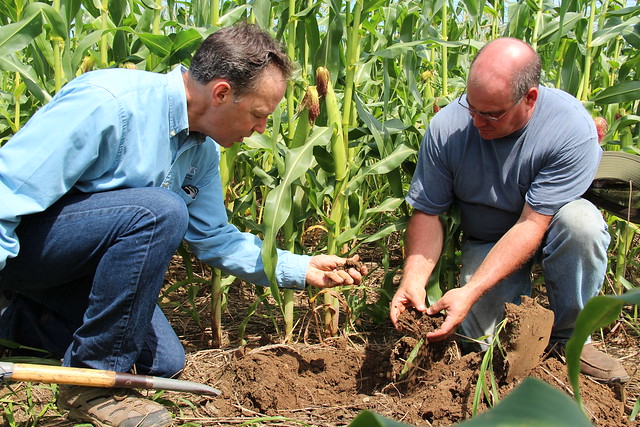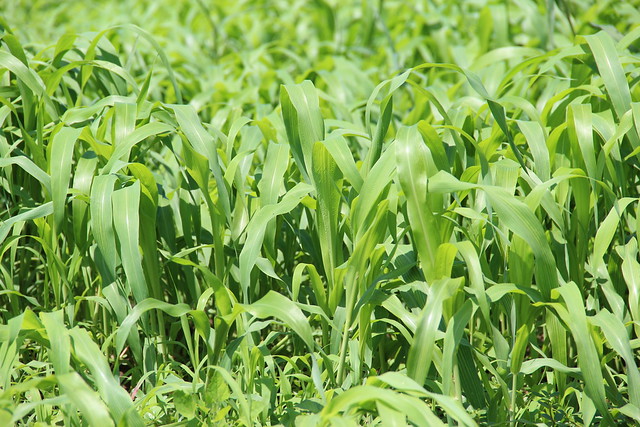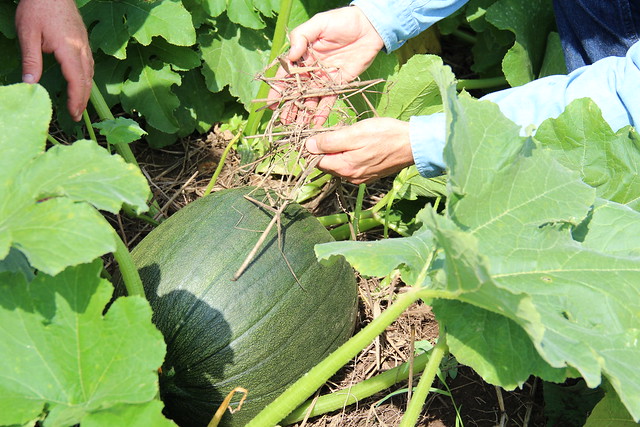
Farming in a suburban town just 25 miles south of Boston has both benefits and challenges. Those benefits and challenges result from the same thing, lots of neighbors.
Lots of neighbors mean lots of customers for Ward’s Berry Farm’s retail farm stand and pick-your-own operation in Sharon, Massachusetts. They also mean competition for water resources and stricter state regulations to protect public drinking water supplies.
Farmer Jim Ward has found a way to meet customer demand, while protecting water resources; he’s adopted good soil health practices with the help of USDA’s Natural Resources Conservation Service.
His soil health management system includes no-till, a way of growing crops without disturbing the soil, cover crops (grasses or legumes planted after regular crops are harvested to prevent run-off and add organic matter) and nutrient management, which means managing soil nutrients to meet crop needs while minimizing the impact on the environment and the soil.

“A major impetus for what I do as far as conservation is the fact that I sit on an aquifer that supplies most of the town’s water,” says Ward. “It’s all about the water’s quality. I hope, with our management practices, we will never leach nutrients or pesticides into our neighbors’ water. We’re trying to do our part to see that that doesn’t happen.”
“A soil health management system includes different aspects of growing a crop,” explains Tom Akin, NRCS Massachusetts’ Conservation Agronomist. “It takes into consideration planting methods, weed and pest control strategies, and end-of-season activity such as cover cropping, all of which contribute to a holistic soil management system.”
NRCS is promoting soil health activities to farmers and educating them on how they can implement these practices on their farms. Ward’s soil health practices help him conserve water, making his farm more environmentally and economically sustainable.
His no-till sweet corn and pumpkins weathered the 2012 drought well. “We never saw the no-till corn or pumpkins wilt, while a few feet away in bare ground, corn at the same stage was curling at the ends. We were spared, easily, four nights of irrigation on the no-till that season,” says Ward. “We do far less irrigating, and I find that omitting tillage is cost-saving too. I feel good about what it is doing to the soil, and I feel that we are improving our bottom line.”
Ward’s Berry Farm customers will be glad to know that good soil health on the farm is providing them with better quality produce. “I haven’t seen a dry tip in sweet corn growing on no-till, so I believe that is directly related to the more consistent availability of water,” says Ward. “I see larger ears and a great improvement in the quality of the sweet corn.”
Ward is so sold on his soil health management system that he encourages other farmers to give NRCS a call. “I would highly recommend people try it because it’s been a real eye opener. If you are reluctant, try it on a small scale.”

Akin notes that while it often takes a while to see the results of many conservation practices, the results of a soil health management system are almost immediate. “By reducing tillage and growing cover crops, farmers will see benefits such as improved water holding capacity of their soils and better drought resistance. The living roots and the above-ground biomass of cover crops conserve a lot of water and contribute significant quantities of carbon (the food source) for beneficial bacteria and fungi in the soil.”
He also says that he enjoys working with farmers like Ward because of their commitment to stewardship. “He is committed to leaving his farm for the next generation better than he found it.”
“I don’t want to be a person who is leaving his land in a state that is less useful to the next person. As someone who plans on doing this for a long time, I would like to see my children be able to farm on this soil,” says Ward. “Improving the soil’s ability to handle moisture and nutrients is going to make their lives simpler. If I can keep it vibrant and healthy with microorganisms and soil organic matter, then we will all be better off. It’s not an earth-shattering revelation. It just feels like the right thing to do.”

